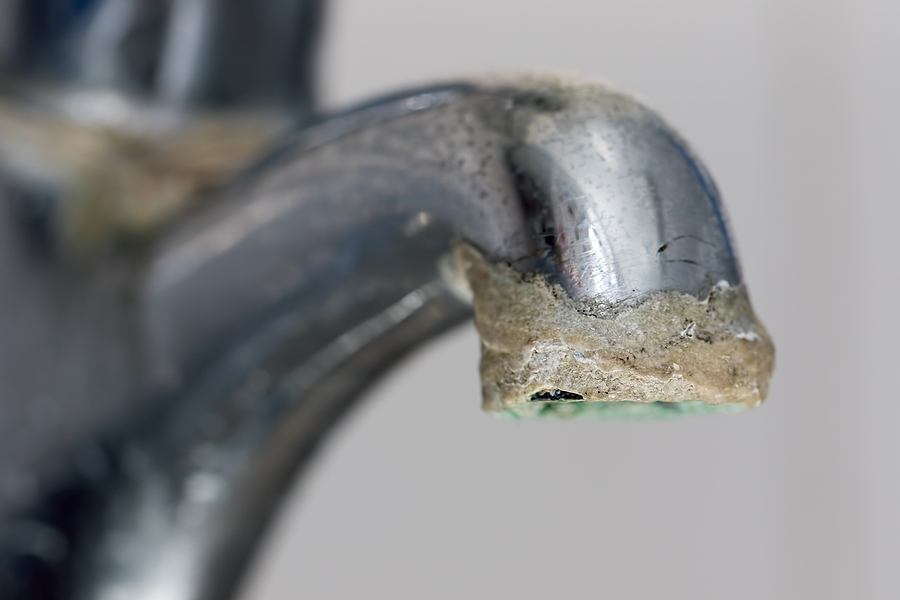Menu
Call This Tuesday to Get $50 Off
Do You Need a Plumber in Dallas, TX? Call us Now to Get $50 OFF
4.8 / 5 Ratings based on 1384 reviews Great Plumbers, Great Reviews
Call This Tuesday to Get $50 Off
Is there soap scum buildup on your shower doors, sinks, faucets, and bathtubs? Have you noticed white or chalky stains on dishes, glasses, and cookware? These are the first signs of hard water in your home. Hard water contains high levels of dissolved minerals, mainly calcium and magnesium, which can cause various problems in your home. While hard water isn’t harmful to your health, it does have an impact on your plumbing. Today, we’ll discuss the impact of hard water on your plumbing and provide you with solutions to protect your plumbing. Here at Mr. Rooter Plumbing, we understand how hard water can affect your plumbing, and we’ve been called on many times to fix plumbing issues caused by hard water. We are the go-to plumbing service when you need help with hard water damage.

Minerals like calcium and magnesium in hard water tend to settle and accumulate inside pipes over time. This buildup, often known as scale, narrows the pipe’s diameter, restricting water flow and pressure. Reduced flow can manifest as slower draining in sinks, showers, and bathtubs, and lower water pressure throughout your home.
The same mineral buildup impacting pipes also affects appliances that rely on water, like washing machines, dishwashers, and water heaters. Scale buildup reduces heating efficiency in water heaters, forcing them to work harder and ultimately shortening their lifespan. In dishwashers and washing machines, mineral buildup can clog valves, spray arms, and other components, leading to leaks, malfunctions, and reduced cleaning performance.
Hard water isn’t just bad for pipes; it can harm fixtures too. Here are three ways hard water can impact your fixtures:
Over time, minerals and sediment from the water supply settle at the bottom of your water heater tank. This buildup acts as an insulator, reducing heat transfer to the water and forcing the heater to work harder to maintain the desired temperature. This can result in longer heating times, lukewarm water, and increased energy bills. We recommend you schedule regular flushing of your water heater tank by a qualified plumber to remove sediment buildup.
This is the most effective way to tackle hard water in your home. A water softener works through a process called ion exchange. It softens water throughout your plumbing, preventing scale buildup and improving appliance efficiency. If you need water softener installation, rely on a reputable and experienced plumbing service like Mr. Rooter Plumbing.
This involves removing existing scale buildup from pipes, faucets, and appliances with various methods like vinegar, citric acid, or commercial descaling solutions. It can be effective for smaller areas and specific appliances. Experienced plumbers have advanced tools for descaling pipes and other plumbing fixtures. The problem with descaling is that it's a time-consuming process that needs repeated application to prevent new buildup. Furthermore, it won't prevent future scale formation and may not be suitable for extensive or deeply embedded scale.
This is an essential water heater maintenance task if you have hard water in your home. It removes sediment buildup in your water heater, including some hard water minerals. It can improve the efficiency, lifespan, and safety of the heater. If you’ve noticed loud sounds coming from your water heater, it could be due to sediment buildup. Be sure to call a reputable plumbing repair service to diagnose the problem and make repairs.
Do you have hard water in your home and need professional help? Mr. Rooter is one phone call away. Our plumbers will conduct a comprehensive assessment and suggest the best solutions available. Moreover, our plumbers can help with water softener installation, descaling pipes, water heater maintenance, pipe replacement, water heater replacement, and more. Do not hesitate to call us today.
One slow drain is annoying but usually manageable. When two or three start backing up…
Read More+Kitchen plumbing gets used more than almost any other system in the house, and constant…
Read More+Few home repairs carry stakes as high as work involving natural gas. The convenience of…
Read More+Running a business means juggling countless responsibilities, and plumbing probably isn't at the top of…
Read More+